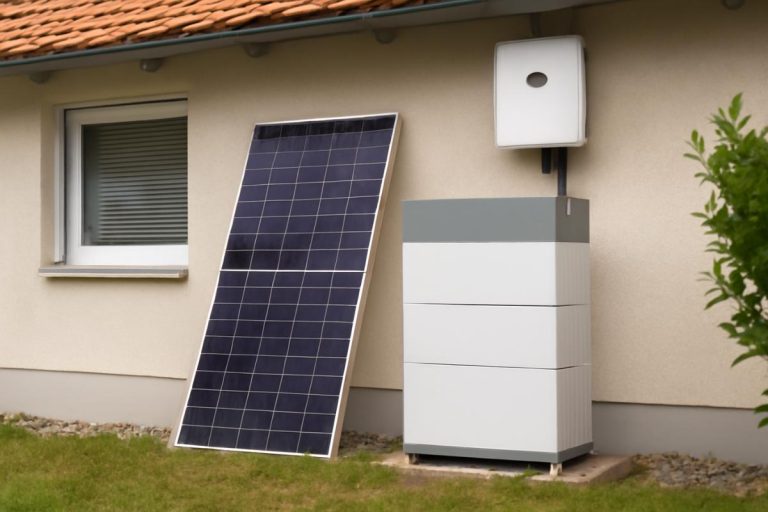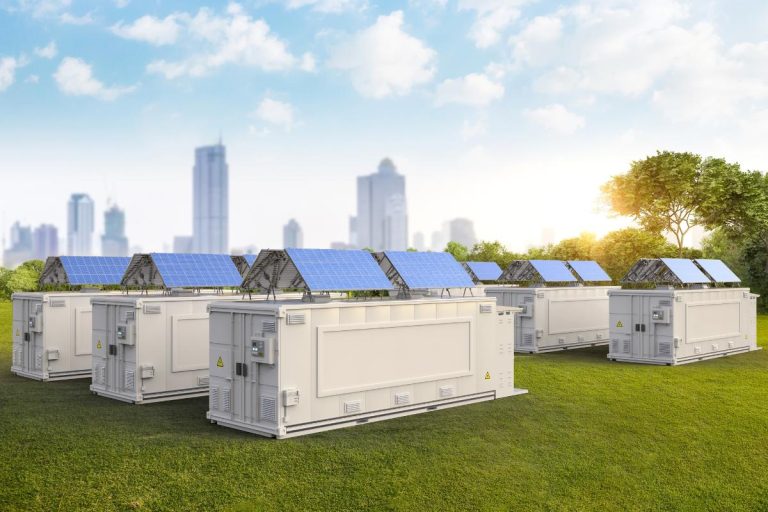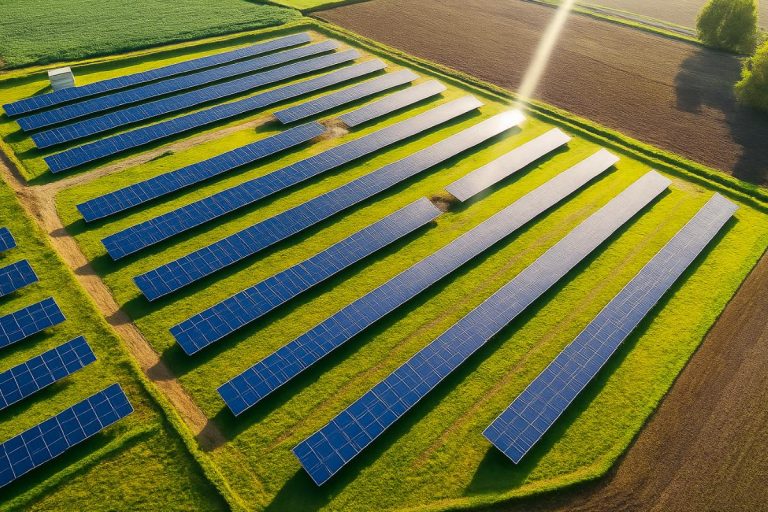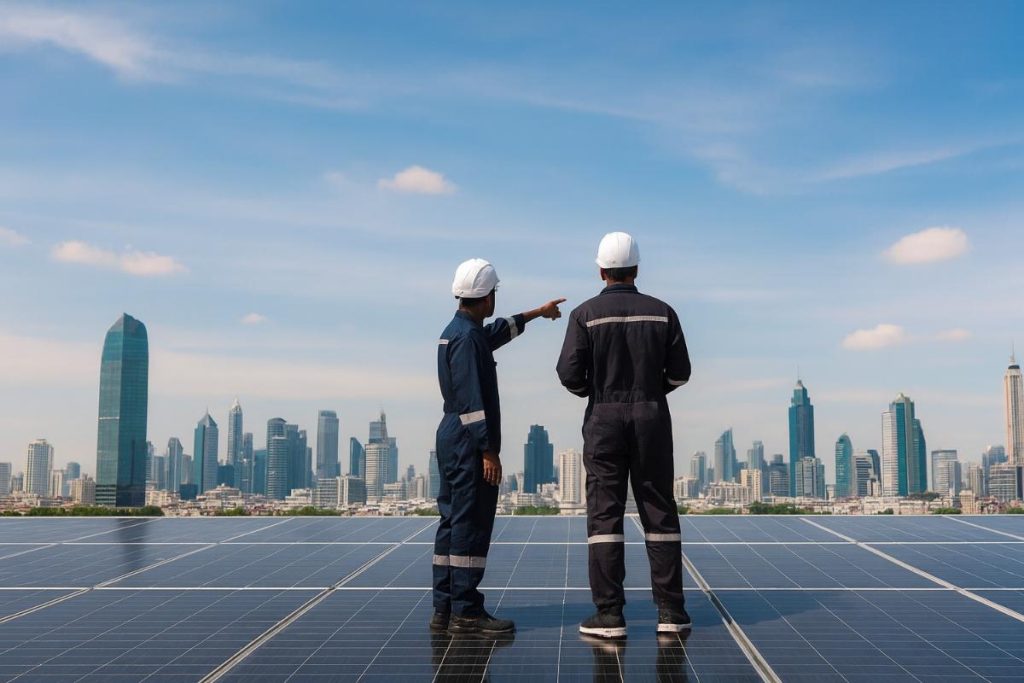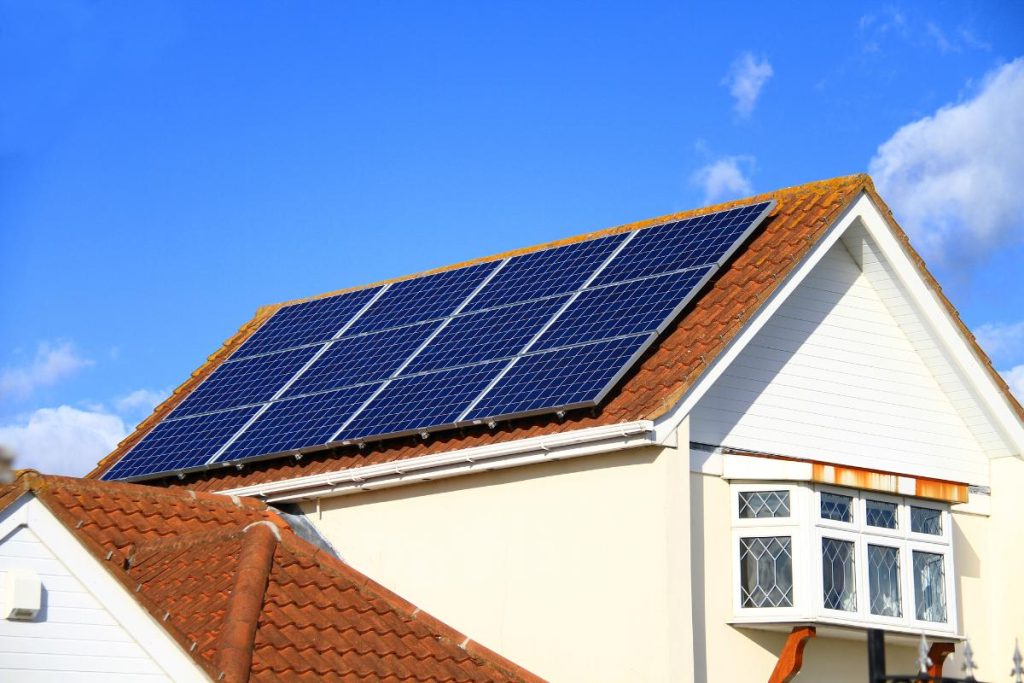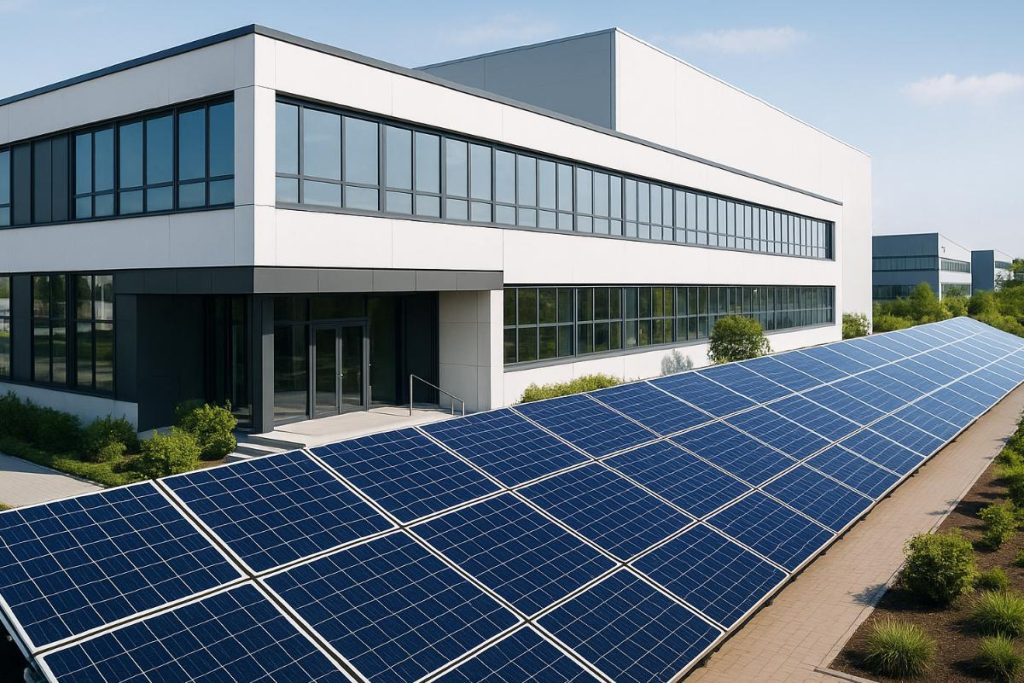The advantages of solar energy photovoltaic systems have been gaining more and more prominence in Brazil and around the world because they represent a clean, economical and sustainable alternative for generating electricity. Whether in homes, businesses or industries, the installation of photovoltaic systems brings a series of benefits ranging from cost savings to contributing to environmental preservation.
In this article, we'll explore these main advantages in more detail, as well as understanding how solar energy works and the types of systems available. Let's go?
How does solar energy work?
Solar energy is captured through photovoltaic panels, which are usually installed on the roof of buildings or in open areas with good sunlight. These panels are made up of photovoltaic cells, which convert sunlight into electrical energy through the photovoltaic effect. The energy generated is then sent to an inverter, which transforms the direct current (DC) into alternating current (AC), compatible with the electricity grid and the appliances we use on a daily basis.
Depending on the type of system installed, the energy can be used immediately, stored in batteries or even injected into the electricity grid, generating credits that can be used later.
Check out a more detailed explanation of how solar energy works!
What are the types of solar energy?
There are three main types of solar energy systems: off grid, on grid and hybrid, each with specific characteristics that adapt to different needs.
Let's get to know each of them:
Off grid
The off-grid system is independent of the conventional electricity grid. It uses batteries to storing energy generated by the solar panels, which allows electricity to be used even in remote locations or at night when there is no sunlight.
BYD is a pioneer and world leader in battery energy storage systems, excelling in research and development. With its lithium iron phosphate (LiFePO4) technology, the company has provided safe and efficient energy storage solutions for hundreds of projects in sectors such as utilities, commerce, industry and homes, serving many urban areas around the globe.
On grid
The on-grid system is connected to the electricity grid. The energy generated by the solar panels is used to supply the property, and the surplus is injected into the grid, generating credits that can be used at times of low production, such as at night or on cloudy days. This is the most common system in urban areas, as it doesn't require batteries and allows for significant savings on electricity bills.
Hybrid
The hybrid system combines the characteristics of off-grid and on-grid systems. It is connected to the electricity grid, but also has batteries to store energy. This guarantees greater autonomy and safety, especially in regions with frequent power outages.
What are the advantages of solar energy?
Solar energy offers a number of benefits ranging from environmental preservation to financial savings. Let's break these advantages down into three categories: environmental, economic and social.
Environmental advantages of solar energy
Solar energy is renewable, non-polluting, silent, has a long lifespan, recyclable equipment and brings energy to isolated areas.
Learn more about how each of these points works:
Renewable energy source
Solar energy is a clean and renewable source of energy, meaning that it does not run out and does not emit pollutants when generating electricity. Unlike fossil fuels such as coal and oil, which release greenhouse gases, solar energy contributes to reducing global warming.
No noise pollution
Photovoltaic systems are silent, which makes them ideal for residential areas or places where noise is a problem. Unlike diesel or gasoline generators, which emit noise, solar energy operates completely silently.
Long service life
Solar panels have an average lifespan of 25 to 30 years, with little loss of efficiency over time. This means that, after the initial investment, you'll have decades of clean, economical energy.
Photovoltaic equipment can be recycled
Most of the components in photovoltaic systems, such as panels and inverters, are recyclable. This reduces the environmental impact of disposing of electronic equipment and promotes the circular economy.
Solar energy can be used in areas isolated from the electricity grid
In places where the electricity grid doesn't reach, solar energy is a viable and efficient solution. Off-grid systems allow access to electricity in rural communities, environmental preservation areas or even on boats and motorhomes.
Economic advantages of solar energy
The advantages of solar energy in terms of savings are a reduction of up to 90% in electricity bills, low maintenance, return on investment in 3-5 years, free energy and property appreciation.
Save up to 90% on your electricity bill
One of the biggest attractions of saving solar energy is the significant reduction in electricity bills. On average, users can save between 70% and 90% off their bill, depending on the size of the system and energy consumption.
Minimal maintenance required
Photovoltaic systems require little maintenance, as do sanitizing carpets at homeThe cost of cleaning the panels, which are cleaned at certain times of the year, is generally limited to periodic cleaning of the panels and checking the operation of the inverter. This reduces costs over time.
Payback time of up to five years
Despite the initial cost, the investment in solar energy pays for itself in a relatively short period of time, usually between 3 and 5 years. After this period, the energy generated is practically free.
It's a free source of energy
The sun is an inexhaustible and free source of energy. Once the system is installed, you don't have to worry about increases in energy tariffs or the scarcity of resources.
Property valuation
Properties with solar energy systems installed have a higher market value, as they are seen as modern, sustainable and economical. This can be a differentiator when selling or renting the property.
Falling prices due to advances in technology
As technology has advanced and demand has increased, the price of photovoltaic equipment has fallen significantly in recent years, making solar energy more accessible.
Social advantages of solar energy
On the social issue, as well as the olfactory marketingSolar energy generates jobs, can be installed on any property, shares energy credits and takes up little space.
Generating jobs and income
The expansion of the solar energy market has generated thousands of jobs, from the manufacture of equipment to the installation and maintenance of systems. This contributes to economic and social development.
Installation in any building (homes, businesses and industries)
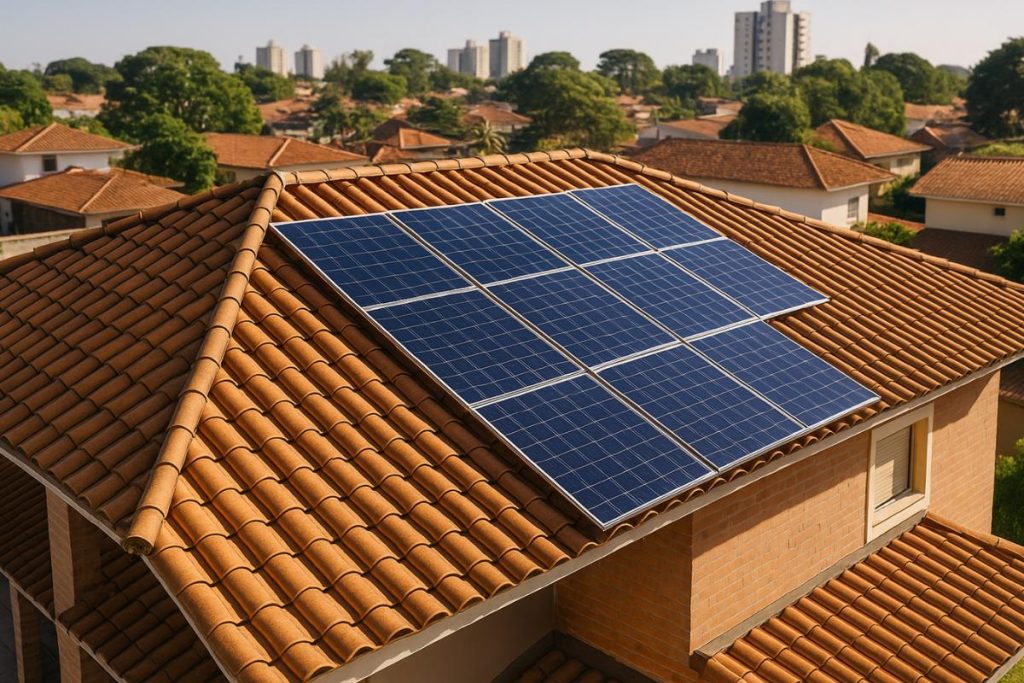
Solar energy can be installed on practically any type of property, from small homes to large industries. The system's flexibility allows it to be adapted to the needs of each consumer.
Possibility of generating and sharing credit on the electricity bill of more than one household with the same CPF (Individual Taxpayer Registration Number)
In the on-grid system, it is possible to generate energy credits that can be used in other consumer units registered with the same CPF. This is ideal for those who own more than one property.
Takes up little space
Solar panels can be installed on roofs or in small areas, without taking up too much space. On rural properties, for example, panels can be installed on unused areas such as pastures or parking lots.
Is photovoltaic solar energy the best solution?
Photovoltaic solar energy is one of the best solutions for those looking for savings, sustainability and energy independence. However, it is important to assess the conditions of the site, such as solar incidence and available space, to ensure the efficiency of the system.
Who can benefit from solar energy and how?
Anyone can take advantage of the benefits of solar energy, as long as they have a suitable place to install the panels. The first step is to carry out a feasibility analysis, which includes assessing energy consumption and the potential for solar generation at the site. Then you need to choose a reliable supplier to install the system.
BYD Energy do Brasil is the country's leading producer of photovoltaic modules. With its factory located in Campinas, the company has already manufactured more than 2.5 million photovoltaic modules in the country. This volume corresponds, on average, to a reduction of 6.5 million tons of CO2 per year, which is equivalent to planting 300 million trees.
Solar energy is an intelligent, economical and ecological alternative for those who want to reduce costs and help preserve the environment. With so many advantages, it's no wonder that this technology has become increasingly popular. Why not start planning the installation of your photovoltaic system today? The planet and your wallet will thank you!
Invest in solar energy for your home. contact!



